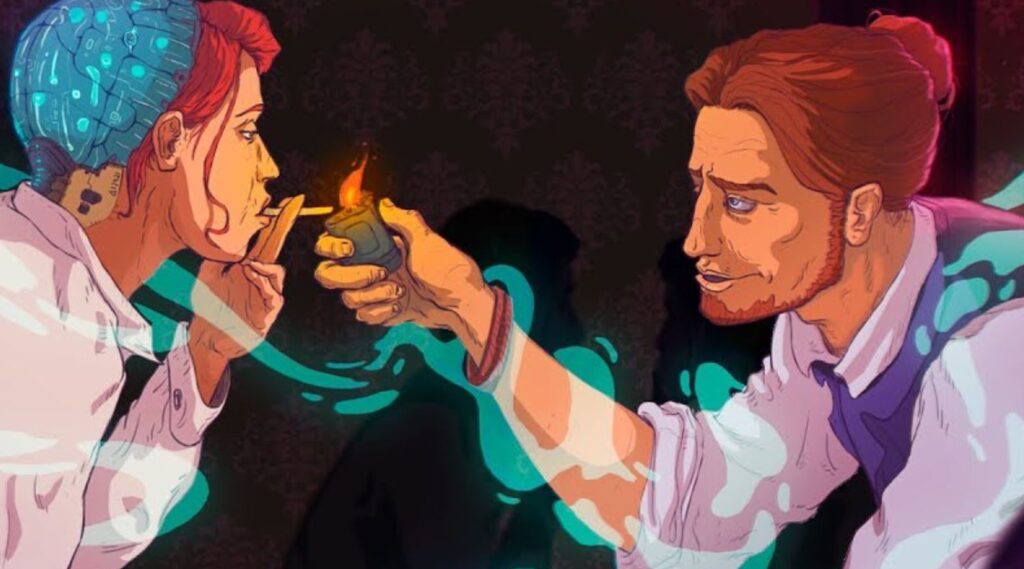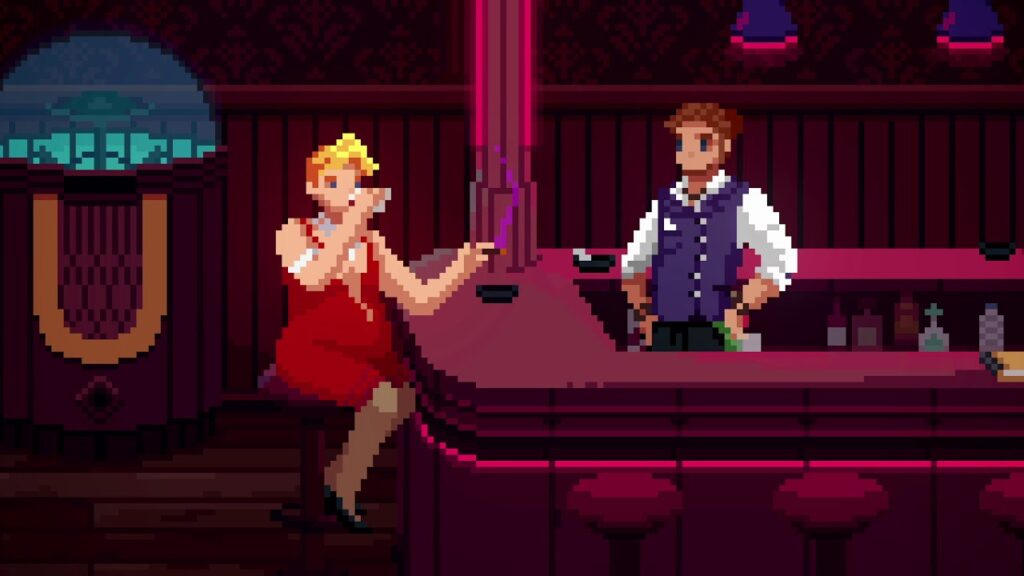
The Red Strings Club understands the dystopian nightmare of Cyberpunk is already here
Cyberpunk as a genre has steadily been regaining popularity in video games, from small visual novel projects like VA11-HALL-A, to the now infamous Cyberpunk 2077. But something these stories consistently seem to miss is the fact that the ominous techno-dystopia they’re warning audiences about is already here. These cautionary tales lose their bite because they fail to acknowledge that most of the injustices and corporate practices they fear have already been put into effect. The Red Strings Club succeeds where these others fail because it acknowledges the modern roots of its futuristic problems when it comes to capitalism, AI, and corporate surveillance.
With its grimy, neon Night City and shall we say…eclectic fashion choices, Cyberpunk 2077 really wants you to believe you’re in The Future™. But upon closer inspection, it becomes all too clear that Night City isn’t all that different from the United States of 2021. Elevators sport ads for water you can buy to supplement the dirty public infrastructure, sex workers are seen as sub-human, and many don’t have access to critical healthcare. VA11-HALL-A is no different, sporting baby-faced sex work robots and cops who just want to keep politics out of their jobs. All of this is waved in front of us in an attempt to show how bleak these worlds are meant to be.
But it’s hard to be moved when all of that is happening now, and has been for years. The Flint, Michigan water crisis was ignored by both the local and federal government from 2014 to 2019, exposing thousands of citizens–including 9,000 children under the age of six–to lead poisoning. We’re currently in the middle of a fight over the legalization vs. decriminalization of sex work in the US, with those in the legalization camp still pushing for laws that make purchasing sex illegal, if not selling it. And even GoFundMe is tweeting about the fact that it’s not a replacement for actual government aid in this time of crisis, though people have been relying on the crowdfunding service for all kinds of life-saving fundraisers throughout the years. The only scary thing Cyberpunk 2077 paints in its bleak future is regrettable outfit choices.

Red Strings Club, another cyberpunk bartending game, succeeds where these others fail because it understands that a future that doesn’t reckon with its past is hollow. Though the story follows multiple characters, you mainly follow Donovan, a bartender with a supernatural affinity for gathering information. He and his partner Brandeis encounter a broken android named Akara that leads them into the tangled web of a supercorporation’s next techno-scheme. Eventually, they come to find out that the android is actually an AI that was originally created back in 2009, and has been subtly influencing human culture through the internet ever since. Like the algorithms those of us who are terminally online are all too familiar with, Akara sits in the background for years, analysing human behavior online and subtly offering up the next big thing just to see what will happen.
This revelation makes it clear that the plot Donovan and Brandeis are trying to stop isn’t the result of some far flung technological future gone wrong; we were on this road long before a busted up robot stumbled into a bar. What we’re seeing here is the result of years of deregulation of corporations, anti-worker legislation, and the increased reliance on and trust in tech start-ups and AI to streamline things.
Think about it: Amazon’s Alexa first went on the market in 2014, just five years after Akara’s fictional birth. Having an AI that monitors what you do, what you say, what you watch, and what you buy is nothing new. The biggest influencers we know are often nothing more than voices in tubes or virtual personalities. And as any American in their 20’s knows, this country has been a surveillance state in the name of combating terrorism for the majority of our lives, if not longer. Supercontinent’s plan to launch an emotional regulation program doesn’t seem as far-fetched when you consider we’ve spent most of the 2010’s hearing about Elon Musk’s Mars colony efforts.
Rather than presenting the evil that’s occurring in the future of Red Strings Club as some distant calamity typical of the Cyberpunk genre, something which couldn’t have been stopped, the game acknowledges our history with tech, corporations, and AI, and shows a simple cause and effect. There’s no hand-wringing or “how did we get here?” Red Strings Club knows how we got here, and it expects you to as well.




